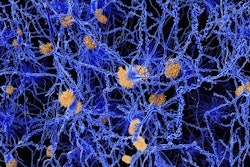Wednesday, November 28 | 12:45 p.m.-1:15 p.m. | PD191-ED-WEB7 | Lakeside, PD Community, Station 7
PET/MRI has shown diagnostic value for cancer staging in adult patients, but what value does the hybrid modality provide for pediatric patients?One advantage is that PET/MRI has significantly less radiation than clinical PET/CT, and it provides excellent soft-tissue resolution. The challenge, however, is that children might not have the patience for longer PET/MRI scans. Another issue is the short-lived vessel contrast of gadolinium-based contrast agents (GBCAs), which could affect the quality of a whole-body scan.
This educational exhibit is designed to present a time-efficient PET/MRI cancer staging protocol that provides excellent image quality for pediatric patients.
Dr. Anne Muehe from Stanford University will present details on an imaging protocol that combines local tumor and whole-body staging with shorter imaging sequences. This protocol is based on the integration of ferumoxytol-enhanced and FDG-PET/MRI scans.
Ferumoxytol (Feraheme, Amag Pharmaceuticals) is viewed as a possible alternative to GBCAs because its superparamagnetic iron oxide particles are detected on MRI and stay in the blood pool longer than GBCAs.




















